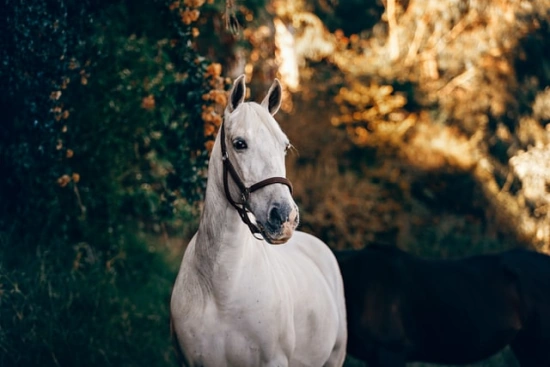Horse

In Ezekiel 26:11, this signifies the love of learning or intellectual things. (Arcana Coelestia 3727)
In Revelation 6:2, this signifies the love of understanding the Word. (Apocalypse Revealed 298)
In Zechariah 12:4, this signifies that the intellectual should be filled with falsities. (Arcana Coelestia 2383[2])
In general, 'a horse' signifies knowledge or understanding of the Word. In an opposite sense it signifies the understanding of the Word falsified by reasonings, and likewise destroyed from self-derived intelligence. 'A dead horse' signifies no understanding of truth from the Word.
Heaven and Hell #34
34. Furthermore, all perfection increases towards interiors and decreases towards exteriors, since interiors are nearer to the Divine, and are in themselves pure, while exteriors are more remote from the Divine and are in themselves grosser. 1 Intelligence, wisdom, love, everything good and the resulting happiness, are what constitute angelic perfection; but not happiness apart from these, for such happiness is external and not internal. Because in the angels of the inmost heaven the interiors have been opened in the third degree their perfection immeasurably surpasses the perfection of angels in the middle heaven, whose interiors have been opened in the second degree. So the perfection of these angels exceeds in like measure the perfection of angels of the outmost heaven.
Fotnoter:
1. [Swedenborg's footnote] Interiors are more perfect because nearer to the Divine (Arcana Coelestia 3405, 5146-5147).
In the internal there are thousands and thousands of things that appear in the external as one general thing (5707).
As far as man is raised from externals towards interiors, so far he comes into light and thus into intelligence and the elevation is like rising out of a cloud into clearness (4598, 6183, 6313).






